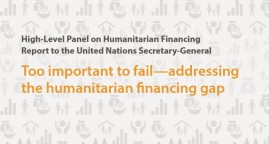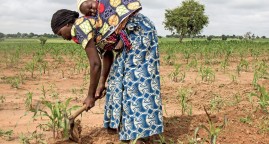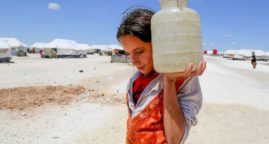Countries in crisis: rethinking the role of development aid
On the occasion of the 3rd National Conference Humanitarian which had met on 23 February in Paris, Anne Paugam, CEO of the French Development Agency, invites us to consider development aid as an investment.
The strategy and procedures of multilateral and bilateral organizations must be revised accordingly.
The reality is there: the crisis of land multiply and transform themselves. The effects of climate change, the Ebola epidemic, recurrent security tensions in the Sahel or Central and Syrian dramas show: the crisis can no longer be considered an exception.
Nearly 2.6 billion people were affected by natural disasters over the past decade and more than 1.5 billion people live in countries affected by violent conflict.
“The costs of the crisis are exorbitant, beyond the human tragedy, the associated economic costs natural disasters of the decade 2005-2015 are estimated at 1300 billion, while the home of people displaced by crises in host regions generates increasing pressure on public services, the environment or local social fabric.”
Given this situation, multilateral and bilateral organizations adapt their strategy and acquire important means of fast action and prevention …
Read the full article (in french) on “La Croix” website
Related Articles
Modify the humanitarian funding streams
03/17/2016. UN aid panel calls for ‘grand bargain’ on finance
Better serving people in need through cooperation with the World Economic Forum
01/19/2016. The ICRC and the WEF focus on collaboration and dialogue between sectors and operate both from Geneva, with a global perspective.
OCHA report : 2017 Humanitarian Response Plan End of Year Report (January – December 2017)
December 2017. Humanitarian needs remain staggering in terms of scale, severity and complexity.






